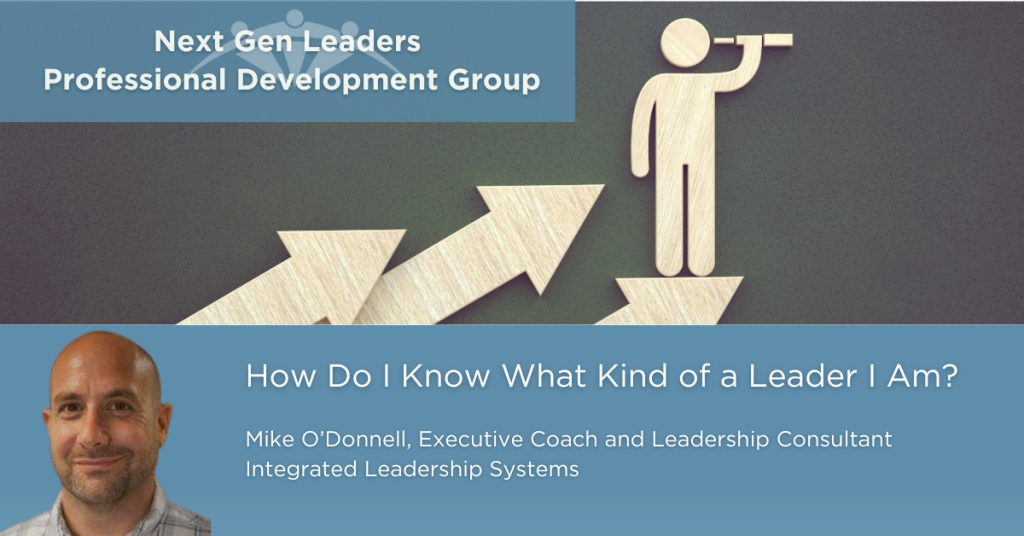What do effective leaders do?
What should leaders do?
Daniel Goleman posed these questions in an article for the Harvard Business Review, and they are questions that we don’t often take the time to think about. We are used to following our daily routines and dealing with the urgent matters at hand and we don’t often take the time to reflect on what makes us effective as leaders. It’s much easier to complete the list of tasks on our desk than it is to consider if our leadership style is building people up and supporting their growth and development in the areas where they most need our leadership or serving as a catalyst for demotivation and creating barriers to growth.
Goleman’s article, “Leadership That Gets Results,” from the March, 2000 issue of the Harvard Business Review, was the focal point of our discussion during our February session of the NextGen Leaders group at the Conway Center for Family Business. Goleman identified six different leaderships styles and explained how these styles operate based on their individual methods, impact on culture, and competencies within emotional intelligence.
What we discovered is that the most effective leaders oscillate between the different styles based on the needs of the situation at hand.
For example, one of the leadership styles Goleman identified is the coercive style. A coercive leader is one who demands immediate compliance and leads with a “Do as I say” posture. While this style is not an ideal style to foster growth and lead over the long term, it is very helpful when creating change in an environment where change is necessary. This style of leadership may be called upon in a situation where inclusivity is threatened, where a business is in a crisis, or when core values are being ignored to the detriment of team members and the health of the business. It can serve as a wake-up call when a team is headed toward disaster. In crucial moments of immediate need a coercive leader can save a business, protect the vulnerable, and even save lives.
If a leader wants to mobilize people toward a vision, the authoritative style builds connection and fosters inclusivity with a “come with me” mentality. This type of leadership promotes freedom for team members to achieve and acts as a catalyst for positive change within the culture of the business. An authoritative leader is self-confident and empathetic, with a positive outlook and a mindset that fosters growth.
Affiliative leaders put people first. This is the leadership style that fosters connection and builds relationships among team members with strong communication skills and the ability to motivate people toward a common goal. An affiliative leadership style is needed when teams need to connect with each other and when the work has become too “task heavy.” Our relationships within the business are key to our success, and it’s because of people that we reach our goals and live out our mission. Building a culture of teamwork and respect is paramount to the purpose of the family business. It’s also critical to make sure that the tasks don’t get overlooked – this can be a blind spot for the affiliative leader.
When it’s time to make decisions, a leader employing the democratic style gains consensus through participation. The democratic style asks, “What do you think?” and builds trust among team members through encouraging feedback, healthy dialogue, and respecting the input from different voices in the room. At times we need collaboration to solve problems and create new solutions. In our family business it’s crucial that we include our family members in our decision-making process, and this is a key point for our NextGen Leaders.
Visionaries tend to populate the entrepreneurial realm, and it is the visionary who often leads with the pacesetting style. When there is a need for high performance, the pacesetting leader will take the initiative and direct the energy of the team toward the goal. This style of leadership gets results, but over time it can be responsible for generating turnover and even a drop in morale among teammates, due to the visionary’s tendency to overlook details and move too quickly.
Leaders who excel in self-awareness and in practicing empathy can employ the coaching style of leadership. The coaching style is perfectly tailored for developing people. Think about some of the great coaches you may have had in your leadership journey. They were able to encourage and inspire, and to see our growth edges in ways that allowed us the room to improve and the guidance we needed to reach our goals. Developing people takes time, patience, and an ability to see things through. This is why self-awareness, and a high EQ are necessary for a coaching leader.
Different situations require us to lead with different styles. As we grow in these styles it’s important that we recognize the strengths and limitations of each one, and that we learn about ourselves enough to know where we excel and where we need improvement. Paying attention to the needs of our family business and where our “sweet spot” of leadership resides will allow us to meet those needs most effectively.
(Goleman, Daniel. (2000) Leadership that Gets Results, Harvard Business Review, https://hbr.org/2000/03/leadership-that-gets-results)
Mike O’Donnell
Executive Coach
Leadership Consultant
Integrated Leadership Systems
If you are a next generation family business member who is interested in topics that address leadership roles in your family-owned business, please join us at these Next Gen Leaders monthly sessions. Contact Amy at adotts@familybusinesscenter if you have any questions about this group.
About the Author:
Mike O'Donnell is an in-demand speaker, presenter, trainer, and leadership coach who believes in empowering leaders to pursue their purpose. An artist by design, Mike's unique approach to equipping leaders unlocks their innate creativity toward building their vision for life, business, and legacy. He is passionately committed to developing a life-giving community of leaders in Columbus who share the art of their business with the world. Mike is an author across multiple platforms and his mission is to help you become the leader you were meant to be.


